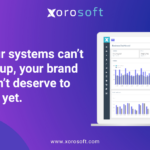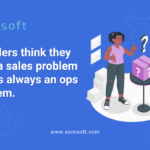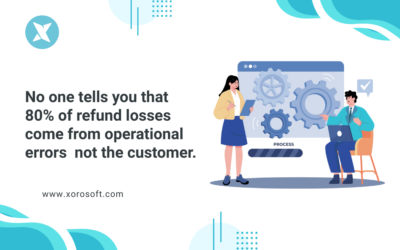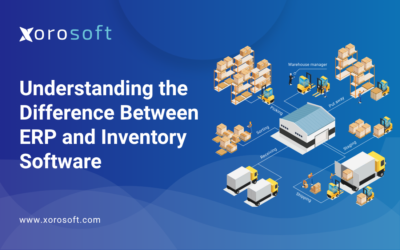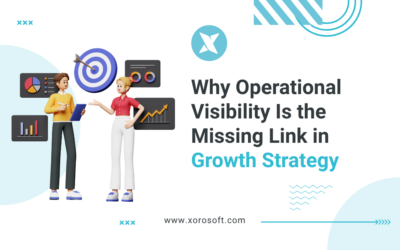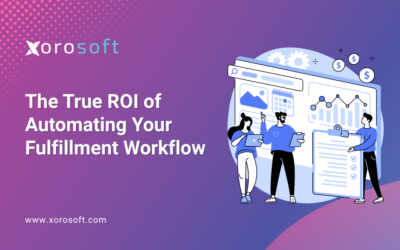
Introduction to ERP Systems and Their Importance
ERP systems are comprehensive software solutions that integrate and streamline an organization’s core business processes, from accounting and finance to inventory management and human resources. These powerful tools have revolutionized the way businesses operate, enabling them to make more informed decisions, improve efficiency, and enhance overall productivity.
However, with the increasing reliance on ERP systems, the need for robust data security has become paramount. Organizations must ensure that sensitive information is protected from unauthorized access, breaches, and misuse, as the consequences of a security breach can be devastating, both financially and reputationally.
Understanding the Need for Enhanced Data Security in ERP Systems
ERP systems typically house a wealth of critical data, including financial records, customer information, employee details, and strategic business plans. This data is the lifeblood of an organization and must be safeguarded at all costs. Failure to do so can lead to data breaches, financial losses, regulatory non-compliance, and a loss of trust from customers and stakeholders.
Moreover, the centralized nature of ERP systems makes them an attractive target for cybercriminals. A successful attack on an ERP system can grant access to a vast trove of sensitive information, potentially compromising the entire organization. Therefore, it is crucial to implement robust security measures to protect this valuable data.
Role-based Access Control and Its Benefits for Data Privacy
One of the most effective strategies for enhancing data security in ERP systems is the implementation of role-based access control (RBAC). RBAC is a security model that restricts system access to authorized individuals based on their specific roles and responsibilities within the organization.
By implementing RBAC, organizations can ensure that users can only access the information and functionalities they need to perform their job duties, minimizing the risk of unauthorized access or misuse of sensitive data. This approach not only enhances data privacy but also streamlines the management of user permissions, making it easier to maintain and update access controls as the organization evolves.
Introducing XoroERP and Its Role in Providing Unparalleled Privacy
XoroERP is a comprehensive ERP solution that places a strong emphasis on data security and privacy. Developed by Xorosoft, a leading provider of enterprise software solutions, XoroERP is designed to meet the evolving needs of modern businesses, with a focus on delivering unparalleled security and control over sensitive information.
Key Features of XoroERP’s Role-based Access Control
At the heart of XoroERP’s security approach is its robust role-based access control system. This feature-rich module allows organizations to define and manage user roles with granular precision, ensuring that each employee can only access the information and functionalities they require to perform their job duties.
Some of the key features of XoroERP’s RBAC include:
- Customizable User Roles: Administrators can create and customize user roles based on the specific needs of the organization, ensuring that each role has the appropriate level of access to data and functionalities.
- Hierarchical Access Control: XoroERP’s RBAC system supports a hierarchical structure, allowing organizations to define access permissions based on an employee’s position within the organization.
- Dynamic Access Permissions: The system can automatically adjust user permissions based on changes in an employee’s role or responsibilities, ensuring that access rights are always up-to-date.
- Detailed Audit Trails: XoroERP’s RBAC module generates detailed audit trails, recording all user activities and access attempts, providing a comprehensive record for compliance and security monitoring purposes.
- Seamless Integration: The RBAC system is seamlessly integrated into the XoroERP platform, ensuring a unified and streamlined user experience for all employees.
How XoroERP Enhances Data Security in Inventory Management
One of the key areas where XoroERP’s RBAC system shines is in inventory management. Inventory data is often highly sensitive, as it can reveal valuable information about an organization’s operations, supply chain, and strategic planning.
With XoroERP’s RBAC, organizations can ensure that only authorized personnel can access and modify inventory records. This includes restricting access to sensitive information such as product quantities, pricing, and supplier details. By implementing this level of granular control, businesses can mitigate the risk of unauthorized access, data breaches, and potential misuse of inventory information.
How XoroERP Ensures Privacy in Accounting and Financial Management
In the realm of accounting and financial management, the need for robust data security is paramount. XoroERP’s RBAC system ensures that only authorized individuals can access and manipulate financial records, such as invoices, payments, and budgets.
By defining specific user roles and permissions, organizations can ensure that employees can only view and modify the financial information they need to perform their job duties. This level of control not only enhances data privacy but also helps to prevent financial fraud, errors, and unauthorized transactions.
Implementing XoroERP in Your Organization: Steps and Considerations
Implementing XoroERP in your organization is a strategic and multifaceted process. Here are some key steps and considerations to keep in mind:
- Assess Your Current Needs: Evaluate your organization’s specific data security requirements, taking into account the sensitivity of the information you handle, industry regulations, and your overall business objectives.
- Plan the Implementation: Develop a comprehensive implementation plan that outlines the project scope, timeline, and resource requirements. This will ensure a smooth and efficient deployment of the XoroERP solution.
- Customize User Roles: Work closely with the XoroERP team to define and customize user roles that align with your organization’s structure and security needs. This will ensure that the RBAC system is tailored to your specific requirements.
- Provide Comprehensive Training: Invest in comprehensive training for your employees to ensure they understand the RBAC system and how to navigate the XoroERP platform effectively.
- Monitor and Maintain: Regularly review and update the RBAC system to ensure that user permissions remain aligned with your organization’s evolving needs and security requirements.
To learn more about how XoroERP’s role-based access control can enhance data security in your ERP system, [book a demo with Xorosoft](https://www.xorosoft.com/book-a-demo) today.
Conclusion: The Importance of XoroERP’s Role-based Access Control in Enhancing Data Security in Your ERP System
In today’s digital landscape, where data is the lifeblood of modern organizations, the importance of robust data security cannot be overstated. By implementing XoroERP’s comprehensive role-based access control system, businesses can take a proactive approach to safeguarding their sensitive information, ensuring that only authorized personnel can access and manipulate critical data.
XoroERP’s RBAC module, with its customizable user roles, hierarchical access control, and detailed audit trails, provides unparalleled privacy and security for your ERP system. Whether you’re managing inventory, handling financial records, or overseeing other core business processes, XoroERP’s RBAC ensures that your data remains secure and protected from unauthorized access or misuse.
As you navigate the ever-evolving landscape of data security, consider the transformative power of XoroERP and its role-based access control capabilities. By partnering with Xorosoft, you can unlock the full potential of your ERP system while safeguarding your organization’s most valuable asset – its data.

